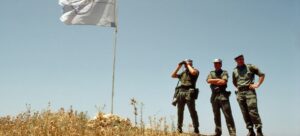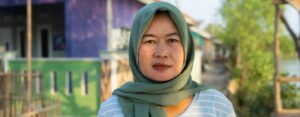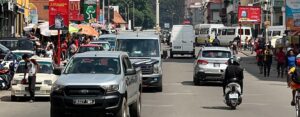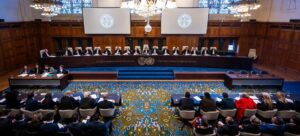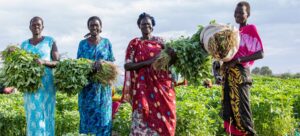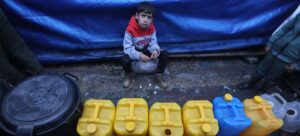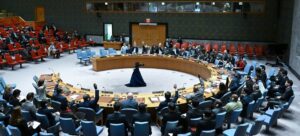Rokaya needed time to recover after illness forced her to quit as a live-in maid in Malaysia and return home to Indramayu, West Java. However, under pressure from her agent who claimed two million Rupiah for her initial placement, she accepted an offer of work in Erbil, Iraq.
There, Ms. Rokaya found herself responsible for taking care of a family’s sprawling compound—working from 6 a.m. until after midnight, seven days per week.
As exhaustion worsened the headaches and vision problems that had originally forced her to leave Malaysia, Ms. Rokaya’s host family refused to take her to a doctor and confiscated her mobile phone. “I was not given any day off. I barely had time for a break,” she said. “It felt like a prison.”
Physical and sexual abuse
The hardships Ms. Rokaya endured will be familiar to the 544 Indonesian migrant workers the UN migration agency (IOM) assisted between 2019 and 2022, in association with the Indonesian Migrant Workers’ Union (SBMI). Many of them experienced physical, psychological and sexual abuse overseas. That caseload comes despite a moratorium Jakarta imposed on work in 21 countries in the Middle East and North Africa in 2015, following Saudi Arabia’s execution of two Indonesian maids.
To mitigate the humanitarian impact of trafficking in person, IOM works with Indonesia’s Government to shore up the regulatory environment on labour migration; trains law enforcement to better respond to trafficking cases; and works with partners like SBMI to protect migrant workers from exploitation – and, if necessary, repatriate them.
Rokaya stands in front of her house in Indramayu, West Java.
“Cases like Ms. Rokaya’s underscore the need for victim-centric approaches and for strengthening the protection system to prevent migrant workers from falling prey to trafficking in persons,” says Jeffrey Labovitz, IOM’s Chief of Mission for Indonesia.
After a clandestinely recorded video of Ms. Rokaya went viral and reached SBMI, the government intervened to get her released. However, she says her agency illegally extracted the cost of her return airfare from her wages and—with a hand around her throat—forced her to sign a document absolving them of responsibility. She now knows better: “We need to really be careful about the information that is given to us, because when we miss key details, we pay the price.”
Ms. Rokaya is relieved to be back home, she adds, but has no recourse to claim the money extorted from her.
A fear of failure
It is an all-too-common situation, says SBMI’s chairman Hariyono Surwano, because victims are often reluctant to share details of their experience overseas: “They fear being seen as a failure because they went overseas to improve their financial situation but returned with money problems.”
It is not only victims’ shame that affects the slow progress of trafficking case prosecutions. Legal ambiguity and the difficulties authorities face prosecuting cases also pose obstacles, compounded by the police sometimes blaming victims for their situation. SBMI data shows around 3,335 Indonesian victims of trafficking in the Middle East between 2015 and the middle of 2023. While most have returned to Indonesia, only two per cent have been able to access justice.
Around 3.3 million Indonesians were employed abroad in 2021, according to Bank Indonesia, on top of more than five million undocumented migrant workers the Indonesian agency for the protection of migrant workers (BP2MI) estimates are overseas. More than three quarters of Indonesian migrant labourers work low-skill jobs that can pay up to six times more than the rate at home, with some 70 per cent of returnees reporting that employment abroad was a positive experience that improved their welfare, according to the World Bank.
“I’m willing to keep going, even if it takes forever,” says fisherman Mr. Saenudin, a trafficking survivor.
Unpaid 20-hour days
For those who become victims of trafficking, the experience is rarely positive. At SBMI’s Jakarta headquarters, fisherman Saenudin, from Java’s Thousand Islands, explained how in 2011 he signed a contract to work on a foreign fishing vessel, hoping to give his family a better life. Once at sea, he was forced to work 20-hour days hauling in nets and dividing catch and was only paid for the first three of his 24 months of gruelling labour.
In December 2013, South African authorities detained the vessel off Cape Town, where it had been fishing illegally, and held Mr. Saenudin for three months before IOM and the Ministry of Foreign Affairs helped him and 73 other Indonesian seafarers to repatriate.
In the nine years since, Mr. Saenudin has been fighting to recover 21 months of missing pay, a legal battle that forced him to sell everything he owns except his house. “The struggle tore me from my family,” he says.
An IOM survey of more than 200 prospective Indonesian fishers provided actionable insights to the government for enhancing recruitment processes, associated fees, pre-departure training, and migration management. In 2022, IOM trained 89 judges, legal practitioners, and paralegals on adjudicating trafficking in persons cases, including the application of child victim and gender-sensitive approaches, as well as 162 members of anti-trafficking task forces in East Nusa Tenggara and North Kalimantan provinces.
For Mr. Saenudin, improvements in case handling can’t come soon enough. Still, the resolve of the fisherman shows no cracks. “I’m willing to keep going, even if it takes forever,” he said.
